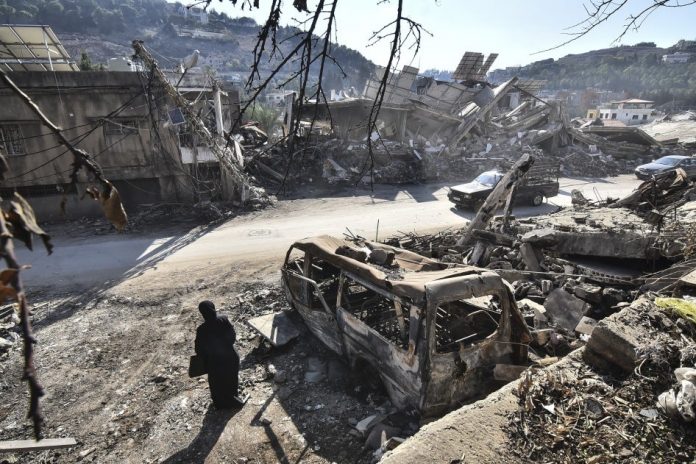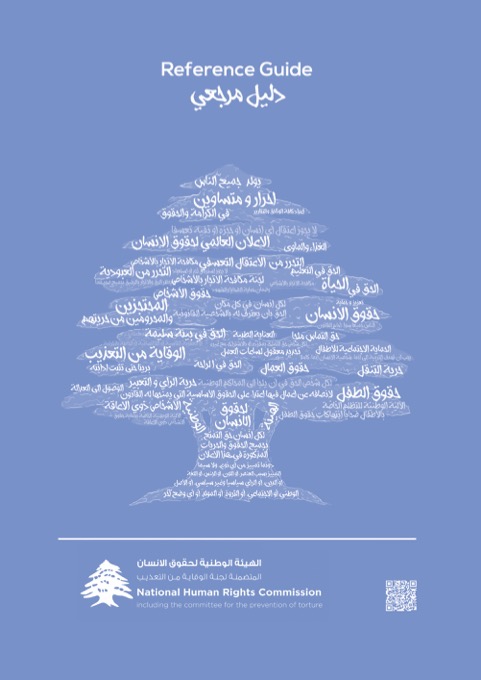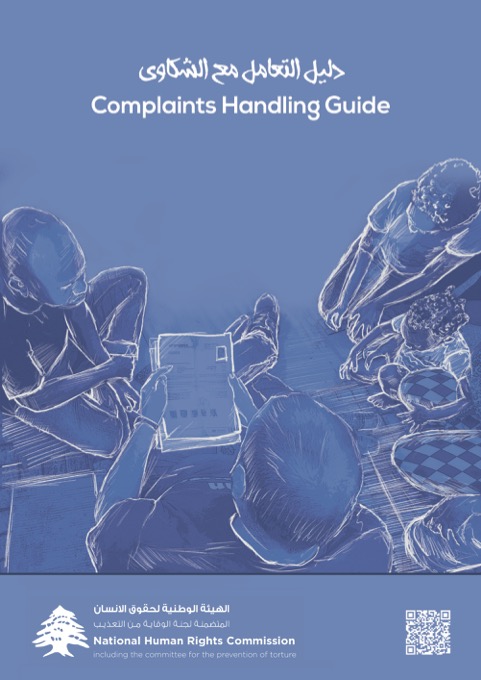هذه المقالة متاحة أيضًا بـ: العربية (Arabic)
According to new research by Human Rights Watch (HRW), Lebanon faces a daunting challenge in rebuilding its critical infrastructure and facilitating the return of displaced communities. When Mahdi Sadeq, a first responder from Nabatieh, walks through his town, he sees more than just rubble and destroyed buildings—he sees the lives that once thrived in these streets, the families now displaced, and the daunting challenge of rebuilding. Since Israeli attacks between October 2023 and December 2024, vast swathes of critical civilian infrastructure across southern Lebanon have been decimated, preventing tens of thousands of Lebanese from returning home. Even if some houses remain standing, the absence of water, electricity, telecommunications, and health infrastructure makes returning impossible.
Lebanon’s newly formed government, under the leadership of Prime Minister Nawaf Salam and President Joseph Aoun, faces one of its greatest challenges yet: facilitating the return of nearly 100,000 displaced individuals while ensuring reconstruction efforts are effective, transparent, and free from corruption.
A Landscape of Devastation
During the 15-month-long conflict, Israeli airstrikes and artillery bombardments led to more than 4,000 deaths and displaced over one million people at its peak. Entire neighborhoods in Nabatieh, Tyre (Sour), and the southern suburbs of Beirut were turned into uninhabitable wastelands. According to a November 2024 World Bank assessment, war-related damage to physical structures alone is estimated at $3.4 billion, with nearly 100,000 housing units across the country damaged or destroyed.
Despite a ceasefire brokered on November 27, Israeli attacks continued in certain areas, killing at least 57 people, including 26 who attempted to return to their villages, still occupied by the Israeli military.
“For the last three days, we haven’t been able to find anything to eat here,” said Sadeq. “Stores and restaurants are gone, banks are gone, food stores are all gone, all pharmacies are gone.”
The destruction of critical civilian infrastructure, particularly water and electricity networks, has had long-term consequences. In Tyre, an Israeli strike on a water filtration and pumping station on November 18 cut off water access for 72,000 residents. It wasn’t until December 25 that temporary measures restored service, though the main water station “needs to be rebuilt from scratch,” according to Kassem Khalifeh, the chief supervisor at the South Lebanon Water Establishment.
The Education Crisis
Beyond housing and essential services, the war has severely impacted Lebanon’s already fragile education sector. In Nabatieh and the southern suburbs of Beirut, schools have been extensively damaged. The Lycée de la Finesse school, for example, suffered direct damage, with satellite imagery showing nearby high-rise buildings reduced to rubble.
“Post-war reconstruction should also prioritize education,” said Ali Awada, the school’s principal. “We need funds for rehabilitating schools, purchasing equipment, and supporting families who can no longer afford tuition.”
With over 16,000 Lebanese students affected by school closures and damage to educational facilities, ensuring access to education is an urgent priority.
The Fight Against Corruption in Reconstruction
In October 2024, donor countries pledged more than $750 million in humanitarian aid to Lebanon, a significant sum but still far from the estimated damage costs. Given Lebanon’s history of mismanagement and corruption, there is growing concern over how these funds will be allocated.
Lebanon’s government must ensure transparency in aid distribution by conducting regular assessments of damage costs and publishing detailed reports on funding allocations, expenditures, and project outcomes. Without strict oversight, the risk of misappropriation could hinder reconstruction efforts and prolong the suffering of displaced communities.
Calls for International Accountability
Human Rights Watch and other advocacy organizations have called for an international investigation into the war’s violations of international law, urging the UN Human Rights Council to establish an inquiry into the hostilities in Lebanon and northern Israel. The Lebanese government has also been urged to grant the International Criminal Court jurisdiction to investigate alleged war crimes committed by all parties.
Rebuilding Lebanon: A Race Against Time
The road to recovery will take years, if not decades. According to business owners in Nabatieh, it will take at least 4-5 years for economic life to resume. But for the displaced families waiting to return home, every day without action feels like an eternity.
“Without access to housing, water, and electricity, hundreds of thousands of people across Lebanon continue to suffer from the consequences of the war,” said Ramzi Kaiss, Lebanon researcher at Human Rights Watch. “Reconstruction efforts must prioritize rebuilding critical infrastructure and restoring public services in a transparent and accountable manner.”
As Lebanon faces this crucial moment in its history, the choices made today will determine whether its people can rebuild their lives—or remain trapped in the cycle of destruction and displacement.


